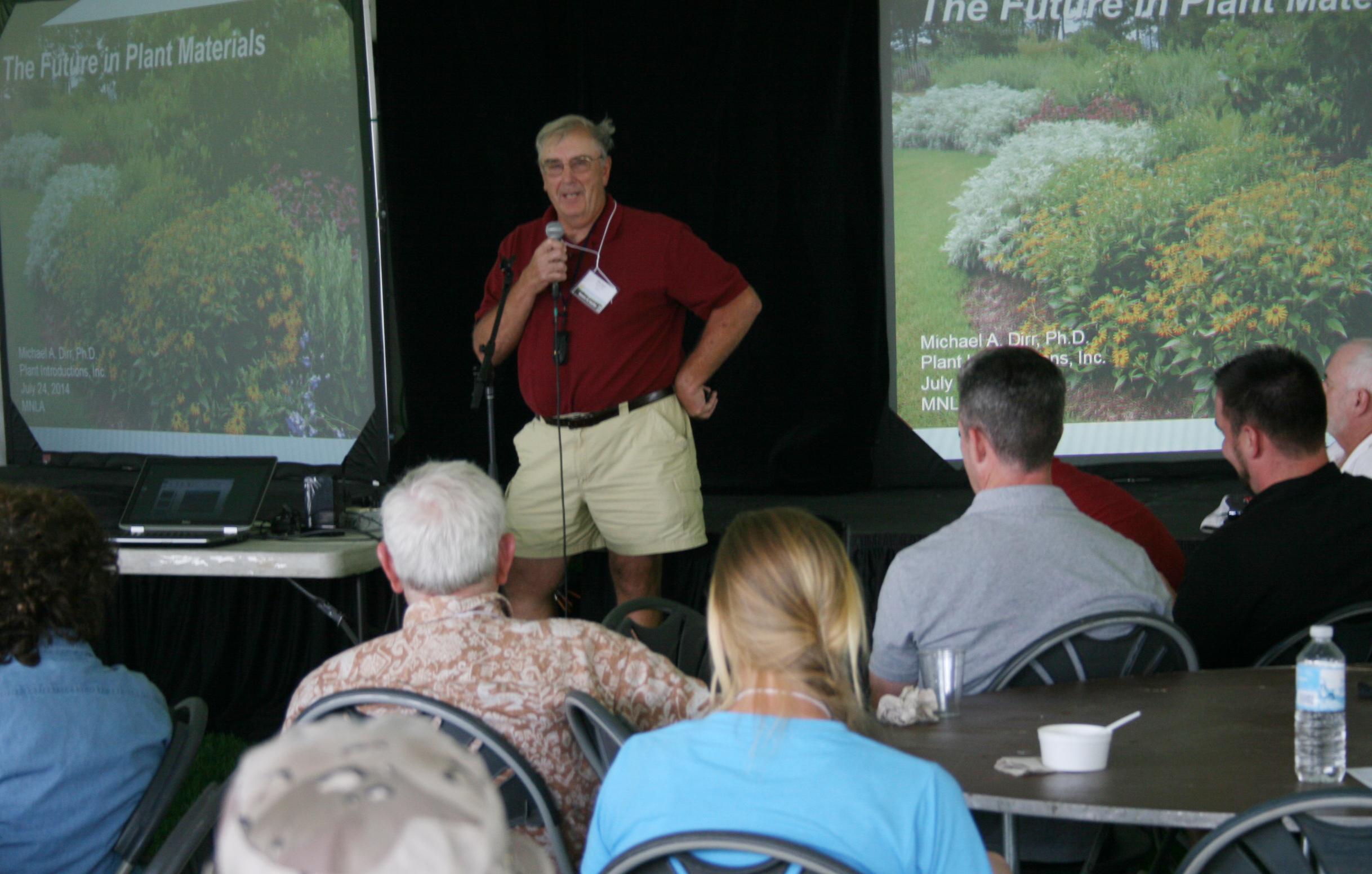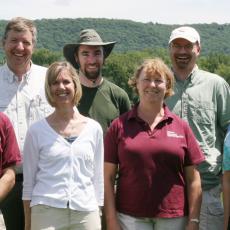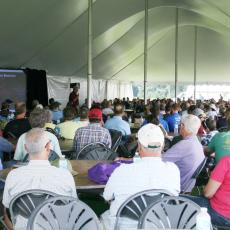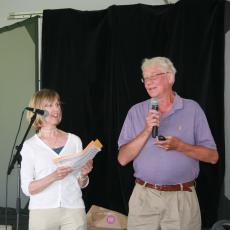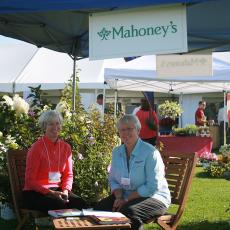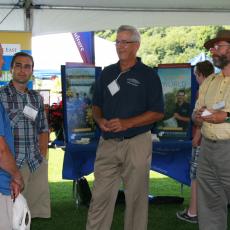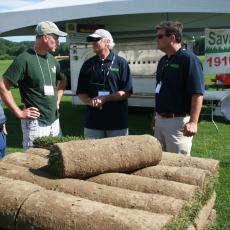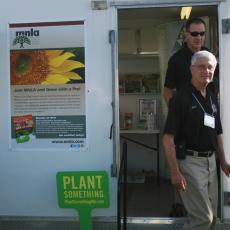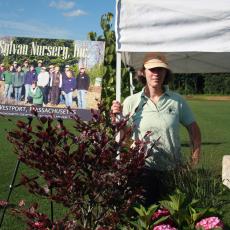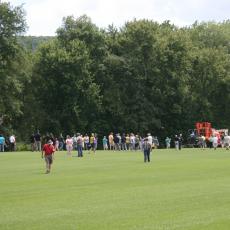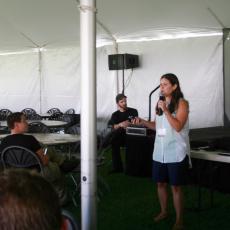Beautiful weather, a wonderful setting, a plethora of flowering plants, soft turfgrass and knowledgeable speakers all came together perfectly to make the annual joint summer meeting of the Massachusetts Nursery and Landscape Association (MNLA) and the Massachusetts Flower Growers Association (MFGA) a valuable event for all who attended. UMass Extension coordinated the day’s educational program, bringing in a variety of speakers and topics for the landscape, nursery and greenhouse industries. Here is a summary of some the topics that were presented:
Mary Owen, UMass Extension, spoke about “Nutrient Regulations in Massachusetts.”
The regulation of fertilizer materials and plant nutrients has been expanding state-by-state throughout the U.S. This session covered the status of the current, pending and proposed regulations in Massachusetts.
Jessica Lubell, University of Connecticut, showcased her research on underused native shrubs as replacements for invasive plants. Native shrubs can be used to create attractive, sustainable landscapes that blend naturally with the surrounding flora. Landscapes composed of native plants are considered sustainable since native shrubs do not pose the threat of introducing new species to an area. When established in landscape sites similar to their natural habitat, native shrubs require little maintenance, are well adapted to local soils and climates and attract beneficial wildlife to the garden. Jessica’s native plant program utilizes a vertically integrated approach to bring underused native shrubs into greater acceptance. You can follow her native plant program on Facebook at: https://www.facebook.com/NativePlantGal.
Gary Koller, Koller and Associates, garden designers. His presentation, “Evaluate then Recycle, Reuse & Refresh Landscape Plantings” was right on target with the conference theme “Down to Earth.” He discussed the need for evaluating and refreshing public landscapes. Showing vivid examples of parking lot plantings, street trees and corporate plantings, much of which was dead, made the case for rethinking strategies with a knowledgeable professional.
Michael Oleykowski, Syngenta Ornamental Controls and Bioline, spoke about “New Options in Control Strategies for the Greenhouse, Nursery and Landscape.” He presented information on a new class of chemistry, anthranilic diamides, which controls insect pests by affecting the muscles of the pest, resulting in paralysis, cessation of feeding and eventual death. The new pesticide, Acelepryn® is labeled for turf and landscape uses.
Bruce Crawford, Director of Rutgers Garden, Rutgers University, spoke about his personal experiences and observations growing the best plant material that should be incorporated more frequently into Northeast gardens. Among the myriad of plants available, there are those that stand alone due to longer floral display, phenomenal foliage or incredible tolerance to challenging sites. Bruce’s best of the best plant material included four-season recommendations.
Chris Kennedy, third generation owner of Kennedy’s Country Gardens in Scituate and MNLA past president, reviewed what was new with exhibitors in his talk “What’s New Under the Big Tent.” Among the new selections were several landscape plants that have been selling well with branding and marketing. These included: Hydrangea ‘Bloomstruck’ and ‘Bobo’; Echinacea 'Cheyenne Spirit'; Ratibida or the Mexican Hat plant (a butterfly magnet); Diervilla sesslifolia ‘Cool Splash’ that is deer resistant; Green velvet boxwood is a favorite for formal looking landscaping; Sourwood (Oxydendrum) Lobularia ‘Snow Princess’; and Evolvulus ‘Blue my Mind’ which blooms all summer.
David Fiske, Garden Curator, Massachusetts Horticultural Society brought over 75 12” patio pots from the trial gardens at Elm Bank in Wellesley, Mass. to show in his “Flower Trial Talk”. The container plants are an example of each plant in the ground beds to show how the plants perform in containers. The New England Trial Garden was established at Elm Bank in 1996 as a cooperative effort between the University of Massachusetts, the Massachusetts Flower Growers’ Association and the Massachusetts Horticultural Society. Breeding companies from all over the world contribute the newest and best varieties of annuals to the New England Trial Garden for viewing by amateur and professional gardeners. Check their web site for all the trial garden scores for this summer, available at end of Aug:
